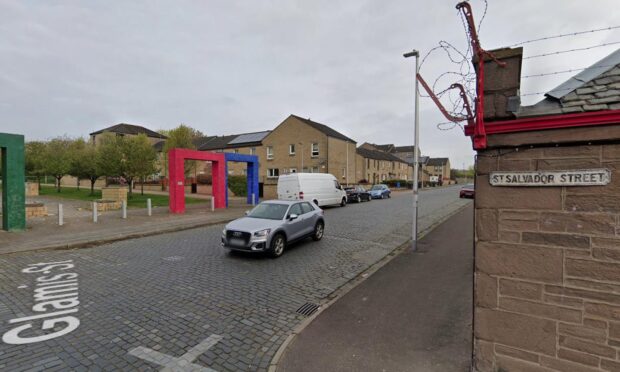Life expectancy for men in Dundee has fallen at a faster rate than anywhere in Scotland.
Males born today in Dundee West, which includes some of the most deprived areas of Scotland, are expected to live five years less than their Angus counterparts just a few miles away.
The figures from a recent report by National Records of Scotland show that an increase in life expectancy across Scotland between 2012 and 2014 has stalled or reduced across Scotland.
Life expectancy also fell elsewhere across Tayside and Fife, but not as rapidly as in Dundee.
Males born today in Dundee are expected to live to see their 73rd birthday and females will live to 79.
Across Scotland, the figures are 77 and 81 respectively.
In Angus, males will live to 78, 77 in Fife, and 79 in Perth and Kinross.
Females in Angus and Fife will live to 81, and 82 in Perth and Kinross.
Twenty weeks has been shaved off life expectancy of males in the City of Discovery when compared to figures from 2012 and 2014.
Females in Dundee also saw a steady growth in life expectancy stall in recent years by 10 weeks.
Jenny Marra, Labour MSP for North East Scotland, said drug deaths in Dundee, which have rocketed in recent years, cannot be solely blamed.
“The fact that Dundee has the fastest falling life expectancy for men in Scotland is a tragic indicator of the change we need in this city,” she said.
“This can’t be separated from the drugs crisis, but it is also a wider picture of fewer jobs and the knock on effect that has on people’s physical and mental health.
“I will continue to campaign for more jobs and stronger public services for Dundee but the politicians who were voted in (last week) also have to outline their plans to turn this around.”
Dundee City Council leader John Alexander described the fall in life expectancy across the country is “shocking” and “particularly concerning in a Dundee context”.
He said: “We continue to grapple with long term and stubborn issues like poverty, obesity, drugs, alcohol and a higher rate of illness in younger age brackets. There’s also a higher prevalence than on other area which makes the challenge even more difficult.
“We’re already starting from a position of being behind and there needs to be far more focus on early intervention and support.”
The SNP councillor hopes a number of measures his administration is taking will help turnaround Dundee’s fortunes.
He added: “Initiatives like the green health prescribing, physical activity strategy, work to reduce poverty, the success in cutting fuel poverty by seven percent works to create more jobs at the likes of Michelin and the port of Dundee are all important.
Nobody from NHS Tayside was available for comment but Gerry McCartney, head of NHS Scotland’s public health observatory, said: “Life expectancy not only gives an indication of how long people are likely to live, but also serves as a warning light for the public’s health.
“With a concerted effort, based on the best available evidence, I believe it is possible to reverse the trends we’ve highlighted and create a fairer, healthier Scotland for all.”
Paul Lowe, chief executive of National Records of Scotland and Registrar General for Scotland, said: “The figures show that the stall in life expectancy growth which we have seen for Scotland as a whole is happening in almost all areas across Scotland.
“However, the rate of change varies amongst council areas with some slowing more than others and some showing falling life expectancy.”
A Scottish Government spokesman said: “Life expectancy in Scotland has been increasing in recent decades with premature mortality rates in the most deprived areas falling since 2007.
“The fact that in 2017 life expectancy fell for the first time since the 1980s is a concern, particularly given the likely impact of UK Government austerity and welfare cuts on the poorest and most vulnerable sections of the community.
“We are continuing our work to improve life expectancy across Scotland by implementing our bold package of measures to tackle key issues such as smoking, obesity, inactivity and alcohol misuse.
“This work to help people live longer, healthier lives is supported by our investment in measures such as affordable housing, free prescriptions, free personal care and providing free school meals.”










